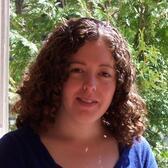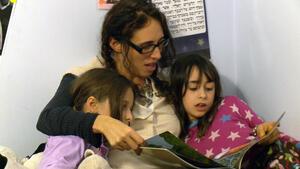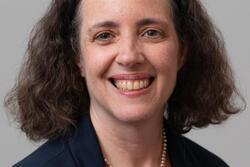All of the Above: Refusing to Choose
There was a moment in my late twenties when I seriously considered rabbinical school. I was changing careers, trying to figure out what my next step would be, and becoming a rabbi would have allowed me to blend my love of Jewish ritual, my intellectual curiosity, and my passion for helping people into a calling. It made sense, on a deep level. But the more I talked about it with friends who were already rabbis and rabbinical students, the more they cautioned me, “As a woman, if you become a rabbi and you’re not married yet, you need to accept that you’ll probably never marry. Men don’t want to date women who are authority figures; it’s too emasculating.” I wanted to be a rabbi. But I also wanted marriage and children. When I believed that I needed to choose between them, I couldn’t bear the thought of never having children of my own. I quietly turned my focus to other graduate programs.
All of the Above, a new documentary, follows four women who decided to become single mothers, rejecting the idea that they had to choose between being rabbis and cantors and having a family. They range from Julie Greenberg, whose five biological and adopted children are now grown, through Basya Schechter, who is just at the beginning of an often painful process of fertility treatments and visits to adoption lawyers. Their stories about their struggles to have children without a partner and raise those children alone feel very relatable—we all know women who have made these choices, or faced these decisions ourselves. But while it may be more common now for women to become single mothers by choice, there is an added wrinkle here because these women are religious leaders, role models for their communities. Is the Jewish community really ready to accept single mothers as religious leaders?
The answer seems mixed. While each of the four eventually finds a job in a supportive community, Julie Greenberg recalls job interviews where, since the interviewers couldn’t legally ask about her marital status or sexual orientation, they instead asked her to bring her husband to dinner as a way to ensure the congregation didn’t end up with a lesbian single mother for a rabbi. She was turned down by every congregation to which she applied. Women rabbis across the movements have reported similar experiences, with congregations subtly (and not so subtly) checking whether a candidate matches the congregation’s image of what a rabbi should be.
For better or worse, rabbis and their families are held up as models of behavior and judged by the congregation, down to the skirt the rabbi’s wife wears, or whether the rabbi’s husband comes to Shabbes services. And while it can often devolve into nasty, petty fault-finding, at its core is the most vital of questions: “Do you deserve the authority I’m conferring on you? Is it safe to look to you for guidance?”
And ironically for these women, their non-traditional roles as single mothers, which might seem like a point against them, is part of what gives them that authority to be leaders of their communities. One of the rabbis in the film, Lisa Gelber, talks about how being a mother deepened her ability to be a rabbi. Basya Schechter believes certain kinds of growth are only possible after you become a parent, and growth is what gives rabbis and cantors the depth they need to understand and counsel people in crisis. Felicia Sol talks about modeling for her congregants that life doesn’t work the way you plan, that you have to move forward with a sense of faith about what’s possible and who you’re meant to be, showing her congregants that “Even your rabbis have struggles…and have to have faith, too.” We need rabbis who understand our struggles. We need rabbis who know what it’s like to live in the trenches. We need rabbis who are all of the above.








I would love to see this documentary but how? i am an ex New Yorker now living in Eugene Oregon . But my heart is in NY and we when return for bid it’s we make sure Friday night service at BJ is on the list. Wish we could move back but our fixed income as elders doesn’t allow it but we are so so nourished by o line services and personal visits which are coming up Oct 3-18. I am a big fan of all the rabbis but especially Rabbi Felicia Sol Wsrmly and with gratitude Julie Beck
Thanks for this post - it's true, we need rabbis who are deeply human: all of the above!